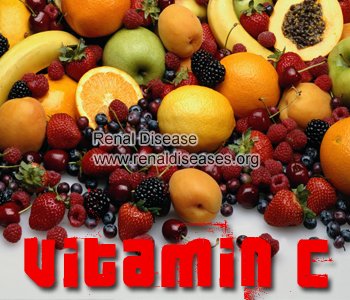Whatsapp: +8615512139310
- Email us:
 If PKD patients experience these symptoms, such as pale look, bleeding gums, poor appetite and fatigue, it may indicate they are suffering from vitamin C deficiency. Read on and you can find causes and solutions of these symptoms.
If PKD patients experience these symptoms, such as pale look, bleeding gums, poor appetite and fatigue, it may indicate they are suffering from vitamin C deficiency. Read on and you can find causes and solutions of these symptoms.
Cause of vitamin C deficiency
1. Fruits and vegetables are an important source of vitamin C. However, these foods usually are high in potassium and phosphorus, which PKD patients should be cautious of. Thus, in order to avoid these elements, patients may not get enough supply of this nutrient.
2. In PKD patients, their digestive systems may not work normally. This will influence the absorption of VC.
3. Some antibiotics may be applied to polycystic kidney disease patients to avoid infection. But some antibiotics may increase consumption of VC.
4. As patients’ kidney can’t function well, VC may leak in urine.
Methods to increase vitamin C absorption
Some patients take in as much this nutrient as possible, in order to get rid of the deficiency symptoms. But this is not the right way to enhance the absorption. The absorption of vitamin C doesn’t have a positive correlation with its intake. The relation between them is listed as below:
| Intake | Absorption rate |
| 30-60mg | 100% |
| 90mg | 80% |
| 1500mg | 49% |
| 3000mg | 36% |
| 12000mg | 16% |
★ Take its supplement right after meals, and it can elevate absorptive and avoid side-effect caused by high dose of it.
★ Choose the supplement in esterified form, as it can be absorbed into your blood and tissues about four times faster than regular form, and the body seems to use it more efficiently.
★ Take it with some nutrients, which can help the absorption. These elements include bioflavonoid complex, vitamins E and A.
★ Don’t take it with tea, coffee and alcohol, as these foods will inhibit its absorption.
The deficiency symptoms can be overcome, if PKD patients can ensure enough vitamin C supply. In the meantime, they should be cautious of negative effects of extra vitamin C intake. Any doubts, feel free to contact us renal-disease@hotmail.com.